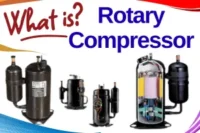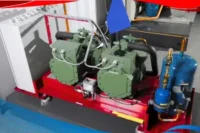Single vs Dual Inverter AC – Pick the Perfect Cooling Type
Published: 24 Oct 2025
When buying an air conditioner, you might see two common types: single inverter vs dual inverter AC. Both help cool your room, but they work in slightly different ways. A single inverter AC has one compressor motor that changes speed to keep the temperature steady. A dual inverter AC, on the other hand, uses two rotors that make cooling faster, quieter, and more energy-efficient.
People often compare these two types because both promise comfort and savings, but they perform differently in real life. Some focus on price, while others care about long-term performance and power use.
In this article, we’ll explain how single and dual-inverter ACs differ in features, performance, price, and more. By the end, you’ll know which one fits your home and budget best.
Let’s see which one suits you better. So, are you ready?
What Is a Single Inverter AC?
A single inverter AC uses one compressor motor that changes speed to maintain room temperature. It cools steadily but may take more time and power. It’s a good choice for small rooms or people who use AC for short periods.
What Is a Dual Inverter AC?
A dual inverter AC has two rotors in the compressor, allowing smoother and faster cooling with less noise and energy use. It suits medium to large rooms or users who run the AC for longer hours.
You can read more about Dual Inverter ACs.
Comparison Between Single Inverter and Dual Inverter AC
When it comes to choosing an air conditioner, many people wonder what makes a single inverter AC different from a dual inverter AC. Both use inverter technology to control cooling speed and save energy, but they work in slightly different ways.
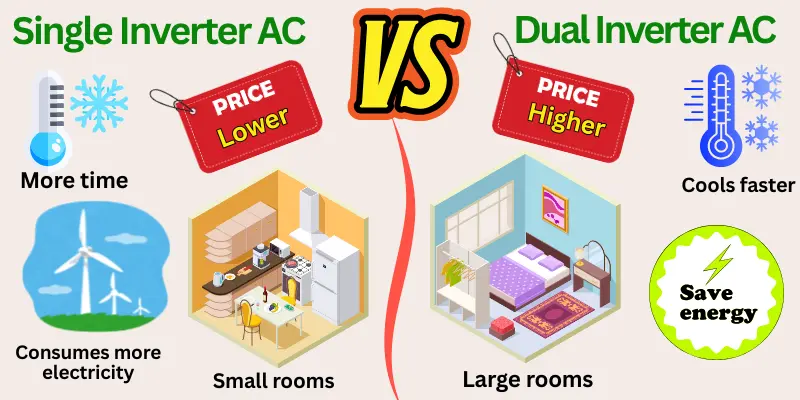
Below is a simple and clear comparison that shows how these two types differ in cooling, performance, price, and overall value.
| Aspect | Single Inverter AC | Dual Inverter AC |
| Basic Working | Has one compressor motor that changes speed to control temperature. | Has two rotors in the compressor that work together for smoother cooling. |
| Cooling Speed | Takes a bit more time to cool the room. | Cools faster and keeps the temperature steady. |
| Temperature Stability | Slight ups and downs in temperature. | Maintains a constant and even temperature. |
| Energy Efficiency | Consumes more electricity over time. | Saves more energy and lowers power bills. |
| Noise Level | It can be slightly noisy when running. | Runs quietly and smoothly. |
| Performance in Hot Weather | Cooling speed may drop in extreme heat. | Works well even in high temperatures. |
| Durability / Lifespan | Moderate lifespan with normal use. | Longer lifespan due to balanced compressor load. |
| Maintenance & Repair | Simple to maintain and cheaper to repair. | Maintenance is easy, but repairs can be costly. |
| Price | Lower buying cost; budget-friendly. | Higher upfront cost but better long-term value. |
| Electricity Bill Impact | Higher monthly power consumption. | Lower monthly electricity bills. |
| Ideal Room Size | Suitable for small rooms or limited use. | Perfect for medium to large rooms or long daily use. |
| Environmental Impact | Consumes more energy, less eco-friendly. | Energy-efficient and eco-friendly option. |
| User Comfort | Cooling feels slower and less steady. | More comfortable due to fast, smooth cooling. |
| Technology | Single-rotor compressor system. | Dual-rotor compressor system. |
| Long-term Value | Good for short-term savings. | Better for long-term performance and savings. |
| Availability | Common in older or budget models. | Found in newer, advanced AC models. |
| Best For | Users with tight budgets or small spaces. | Users who prefer comfort, quietness, and energy savings. |
Now we will discuss all the points in the table one by one in detail. So, are you ready? Let’s see.
1. Basic Working
Let’s begin by understanding how both ACs work inside. They may look the same, but they cool differently.
Single Inverter AC:
- Has one compressor motor.
- Changes speed to control the temperature.
- Slows down or speeds up based on cooling needs.
- Uses simple working and fewer moving parts.
- Easy to repair and understand.
Dual Inverter AC:
- Has two rotors in the compressor.
- Both rotors work together for smooth cooling.
- Balances power and reduces pressure on parts.
- Keeps running steadily without sudden stops.
- Gives stable cooling even after long use.
If you want simple working, choose a Single Inverter. For smoother and balanced cooling, the Dual Inverter is better.
2. Cooling Speed
Cooling speed means how fast your AC can make the room cool.
Single Inverter AC:
- Takes a little more time to cool.
- Cooling feels slower in big rooms.
- Needs more effort in very hot weather.
- Works fine for small spaces.
- It may take longer to reach the set temperature.
Dual Inverter AC:
- Cools rooms faster and evenly.
- Maintains the same speed even in hot weather.
- Reaches set temperature quickly.
- Keeps you cool faster after turning on.
- Saves time and gives quick comfort.
If you like quick comfort, the Dual Inverter AC cools faster and more evenly.
3. Temperature Stability
This shows how well each AC keeps the room temperature steady.
Single Inverter AC:
- Makes small changes in cooling.
- The temperature goes up and down sometimes.
- You may feel the air turning cool and warm again.
- Less steady cooling at night.
- Works fine for short use.
Dual Inverter AC:
- Maintains an even temperature always.
- No big ups or downs in cooling.
- The room feels the same all the time.
- Better control over airflow.
- Ideal for long hours of use.
If you want steady and even cooling all day, go with a Dual Inverter AC.
4. Energy Efficiency
This tells how much power your AC uses to keep you cool.
Single Inverter AC:
- Uses more electricity for the same cooling.
- Runs at higher power when cooling faster.
- Power use stays higher in long hours.
- May increase your monthly bills.
- Works fine for short cooling times.
Dual Inverter AC:
- Saves more electricity with smart control.
- Runs at balanced speed to use less power.
- Keeps the room cool using less energy.
- Reduces pressure on the compressor.
- Great for daily or long-term use.
If you want lower power bills and better savings, a Dual Inverter AC is the right choice.
5. Noise Level
Noise level means how quiet your AC is when it runs.
Single Inverter AC:
- Makes light noise when starting or stopping.
- Sound may increase at high speed.
- Noise can be noticed at night.
- Fine for living rooms or short use.
- Less smooth sound control.
Dual Inverter AC:
- Works very quietly.
- Two rotors balance sound and vibration.
- Perfect for bedrooms or study rooms.
- Keeps the environment peaceful.
- Gives steady sound at all speeds.
If you like quiet and peaceful cooling, a Dual Inverter AC is the better option.
6. Performance in Hot Weather
This shows how both ACs perform when the weather is very hot outside.
Single Inverter AC:
- Cooling becomes slower when the temperature is very high.
- Needs more time to bring down the room heat.
- May not feel strong on extreme summer days.
- Works better in mild or normal weather.
- Best for short or light cooling needs.
Dual Inverter AC:
- Cools fast even in strong heat.
- Keeps performance steady in summer.
- Compressor adjusts speed smoothly.
- Gives cool air without pressure on the motor.
- Great for areas with long, hot summers.
If you live in a very hot area, a Dual Inverter AC gives better cooling and comfort.
7. Durability / Lifespan
This means how long your AC can work properly without big problems.
Single Inverter AC:
- Works well for some years with care.
- One compressor motor does all the work.
- Parts can wear out faster.
- May need repair earlier if used daily.
- Fine for short-term use.
Dual Inverter AC:
- Has two rotors that share the load.
- Compressor runs smoother and lasts longer.
- Less chance of overheating.
- Needs fewer repairs over time.
- Works better for long use.
If you want an AC that runs longer with less stress, a Dual Inverter AC is more durable.
8. Maintenance & Repair
This part explains how easy it is to take care of or fix the AC.
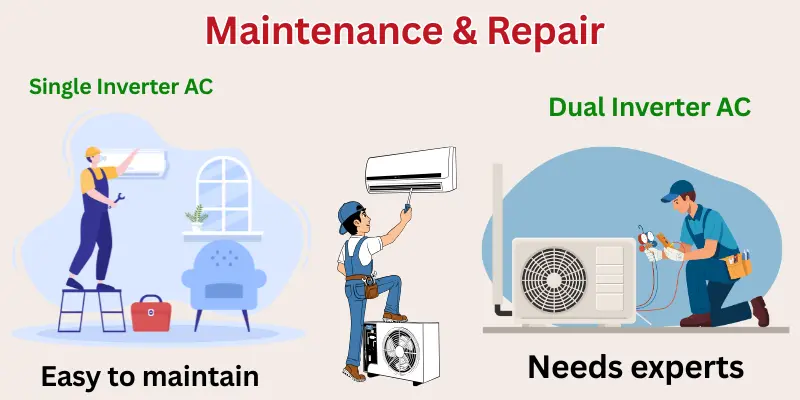
Single Inverter AC:
- Simple design makes it easy to maintain.
- Cheaper to repair when parts fail.
- Common parts are available easily.
- It can be serviced by any normal technician.
- Needs regular cleaning for smooth work.
Dual Inverter AC:
- Needs less cleaning due to smoother running.
- Repairing can cost more if a part fails.
- Needs trained service experts.
- Fewer problems occur if used carefully.
- Longer gaps between services.
If you want easy and cheap repairs, a Single Inverter is fine. For less frequent maintenance, go with a Dual Inverter.
9. Price
Price means how much you pay at the time of buying the AC.
Single Inverter AC:
- Costs less to buy.
- Perfect for small budgets.
- Gives basic comfort at a lower price.
- Affordable for first-time buyers.
- Ideal for homes with limited AC use.
Dual Inverter AC:
- Costs more in the beginning.
- The price is higher due to the advanced parts.
- Saves money later with low power use.
- Gives better comfort for the extra cost.
- Good for long-term investment.
If you have a tight budget, a Single Inverter is good. But if you can spend more now to save later, go with a Dual Inverter.
10. Electricity Bill Impact
This shows how each type affects your monthly electricity bills.
Single Inverter AC:
- Uses more electricity every month.
- Bills go higher if used daily.
- Needs more power to cool in hot weather.
- Fine for short daily use.
- Not good for long-hour running.
Dual Inverter AC:
- Uses less electricity every day.
- Keeps bills lower even with long use.
- Smart control adjusts power automatically.
- Great for people who use AC daily.
- Gives good savings over time.
If you want to save money on monthly bills, a Dual Inverter AC is the smart choice.
11. Ideal Room Size
Each AC type works better in certain room sizes. Let’s see where each one fits well.
Single Inverter AC:
- Works best in small or medium rooms.
- It can cool quickly in small areas.
- May struggle in large rooms.
- Ideal for bedrooms or small offices.
- Not suitable for big living spaces.
Dual Inverter AC:
- Works well in medium and large rooms.
- Keeps even cooling across wide spaces.
- Strong compressor handles bigger areas.
- Great for living rooms and open halls.
- Keeps the temperature steady everywhere.
If your room is small, go for a Single Inverter AC. For larger rooms, a Dual Inverter AC is a better match.
12. Environmental Impact
This shows how each AC affects the environment through power use and emissions.
Single Inverter AC:
- Uses more electricity.
- Causes more load on the power grid.
- Less friendly to the environment.
- Creates more carbon impact.
- Good for short-term, light use.
Dual Inverter AC:
- Uses less power and energy.
- Helps reduce pollution.
- Environmentally safer option.
- Saves energy for future use.
- Meets eco-friendly standards better.
If you care about saving energy and the planet, a Dual Inverter AC is the greener choice.
13. User Comfort
Comfort means how pleasant and smooth the cooling feels when the AC runs.
Single Inverter AC:
- Cooling can go up and down sometimes.
- It may feel uneven when the motor changes speed.
- Slight noise can disturb at night.
- Works fine for short cooling times.
- Comfort level depends on the temperature setting.
Dual Inverter AC:
- Keeps the same cool air always.
- Very quiet and smooth operation.
- Gives balanced airflow in the whole room.
- No sudden changes in coolness.
- Feels more natural and relaxing.
If you want smooth, quiet, and steady cooling, a Dual Inverter AC gives more comfort.
14. Technology
This shows the type of system each AC uses to control cooling.
Single Inverter AC:
- Uses one rotor in the compressor.
- Speed changes to control the cooling level.
- Simple system with basic parts.
- Easy to repair and understand.
- Fine for light cooling needs.
Dual Inverter AC:
- Uses two rotors in the compressor.
- Both work together for smooth cooling.
- Compressor load is balanced evenly.
- Works with less noise and vibration.
- Designed for modern, energy-saving use.
If you want advanced and steady cooling, a Dual Inverter AC is the modern choice.
15. Long-term Value
This means how useful and money-saving the AC is after many years.
Single Inverter AC:
- Cheaper to buy but uses more electricity.
- Bills stay high with daily use.
- May need repair sooner.
- Not good for heavy use.
- Works fine for short-term comfort.
Dual Inverter AC:
- Costs more at first, but it saves later.
- Uses less power and fewer repairs.
- Lasts longer with better performance.
- Gives a higher value for money.
- Perfect for long-term use.
If you think long-term, a Dual Inverter AC gives more value and savings over time.
16. Availability
Let’s see how easy it is to find both types in the market.
Single Inverter AC:
- Common in older or low-cost models.
- Still found in some budget brands.
- Options may be fewer now.
- Good for people who prefer simple machines.
- Stock may vary in stores.
Dual Inverter AC:
- Found in almost all new models.
- Most brands now focus on this type.
- Comes in many sizes and designs.
- Easy to buy both online and offline.
- More advanced choices are available.
If you want modern choices and easy availability, Dual Inverter AC models are everywhere today.
17. Best For
This helps you decide which type matches your needs and lifestyle.
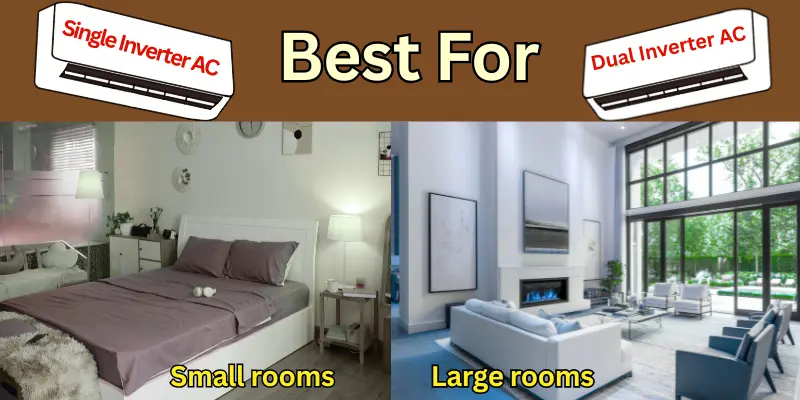
Single Inverter AC:
- Best for small rooms and light use.
- Good for people on a low budget.
- Fine if you use AC for short hours.
- Simple system, easy to maintain.
- Ideal for rental homes or small families.
Dual Inverter AC:
- Perfect for large rooms and daily use.
- Great for those who want steady comfort.
- Ideal for hot climates and long hours.
- Saves energy and money over time.
- Best for long-term home use.
If you want basic cooling for a small space, choose a Single Inverter. If you want comfort, savings, and quiet cooling, the Dual Inverter is the right pick.
Which One Should You Choose?
Both single and dual inverter ACs do the same job – they cool your room. But they fit different needs and users.
A single inverter AC is great for beginners, small families, or people who use AC for short hours. It costs less, is easy to maintain, and gives good comfort for small rooms or light use. It’s perfect for someone who wants simple cooling without spending much.
A dual inverter AC suits regular users, large families, or people who need cooling for long hours. It works quietly, saves more energy, and keeps the room cool and steady even in hot weather. It’s also a better choice for offices, shops, or anyone who values comfort and savings in the long run.
If you want to save money now, go for a single inverter AC. But if you want more comfort, low bills, and long-lasting performance, choose a dual inverter AC.
As an expert, I’d say – always pick the one that fits your room, your budget, and your use. The right AC is the one that keeps you cool and happy every day.
Frequently Asked Questions (FAQs)
Before choosing between a single inverter and a dual inverter air conditioner, many people have some common questions in mind. Here are a few that can help you make the right choice:
- Does a dual inverter AC need a stabilizer?
- Can a single inverter AC handle long daily use?
- Which type of AC is better for coastal or humid areas?
- How often should I service my inverter AC?
Now we discuss the answers to the questions in detail.
Most dual-inverter ACs have an in-built stabilizer. This means they can handle small voltage changes on their own. But if your area has big power cuts or heavy voltage swings, using an external stabilizer is safer. It helps protect your AC and makes it last longer.
Yes, a single inverter AC can run for long hours. But when used all day, it may get a little less efficient over time. The compressor works harder and may heat up faster. For heavy daily use, a dual inverter AC is a better option as it stays cool and runs smoothly.
In coastal or humid places, the air feels sticky and warm. A dual-inverter AC works better here because it cools faster and keeps humidity low. It also uses a special coating on parts to stop rust. This helps the AC last longer even in salty air.
You should service your inverter AC at least two times a year. The first service can be before summer starts, and the second before winter. Cleaning filters, checking coils, and gas levels help keep cooling smooth. Regular servicing also stops small problems from becoming big ones.
Final Note
So, guys, in this article, we’ve covered single inverter vs dual inverter AC in detail. Both have their own strengths, but if you want better cooling, less noise, and lower bills, I personally recommend going for a dual inverter AC. It gives long-term comfort and value for your money. Take a look at your room size and budget, then make the choice that keeps you cool all summer!


